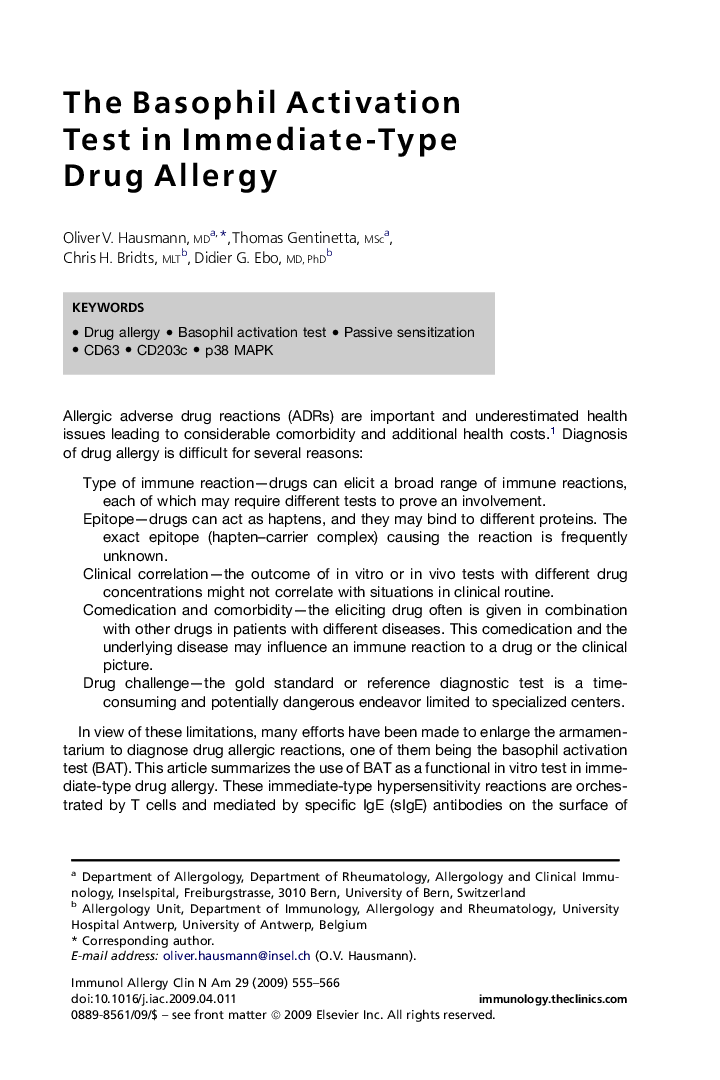| Article ID | Journal | Published Year | Pages | File Type |
|---|---|---|---|---|
| 3354916 | Immunology and Allergy Clinics of North America | 2009 | 12 Pages |
Diagnosis of drug allergy involves first the recognition of sometimes unusual symptoms as drug allergy and, second, the identification of the eliciting drug. This is an often difficult task, as the clinical picture and underlying pathomechanisms are heterogeneous. In clinical routine, physicians frequently have to rely upon a suggestive history and eventual provocation tests, both having their specific limitations. For this reason both in vivo (skin tests) and in vitro tests are investigated intensively as tools to identify the disease-eliciting drug. One of the tests evaluated in drug allergy is the basophil activation test (BAT). Basophils with their high-affinity IgE receptors are easily accessible and therefore can be used as indicator cells for IgE-mediated reactions. Upon allergen challenge and cross-linking of membrane-bound IgE antibodies (via Fc-epsilon-RI) basophils up-regulate certain activation markers on their surface such as CD63 and CD203c, as well as intracellular markers (eg, phosphorylated p38MAPK). In BAT, these alterations can be detected rapidly on a single-cell basis by multicolor flow cytometry using specific monoclonal antibodies. Combining this technique with in vitro passive sensitization of donor basophils with patients' serum, one can prove the IgE dependence of a drug reaction. This article summarizes the authors' current experience with the BAT in the diagnostic management of immediate-type drug allergy mediated by drug-specific IgE antibodies.
